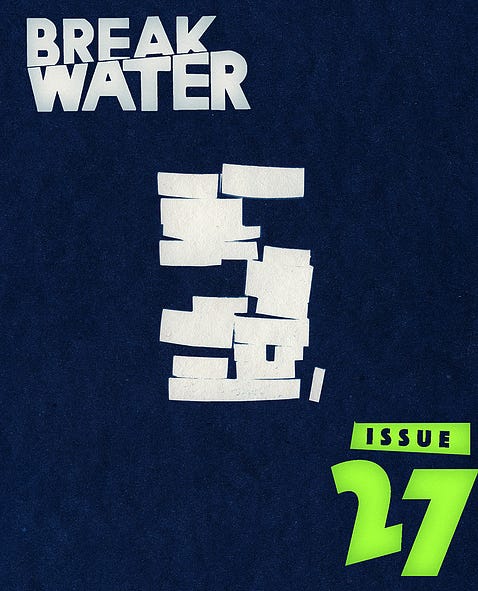Wild Thing: light lessons from plants + a reprint of my poem "Longer Than Night Anyhow"
For this month's wild journey into my literary archive, I'm reprinting a poem that appeared in 2020 (written in 2018). I think through its themes of light, Imbolc, Norwegian ecology, & hope.
For those who knew me in 2018-19, you might’ve known the particular difficulty of that year. I was exposed to the fact that I’d trusted my first screenplay to a predatory producer and former professor, and was struggling to raise money to remake the film without his influence. So many wonderful souls showed up to support my crowdfunding campaign, but to say I felt hopeless and lost during that time…would be quite accurate.
But what I also know, and what nature teaches me, is that we live in cycles. We have to trust that from the descent comes the ascent. And that without difficult knowledges and experiences we live in ignorance, unaware of our true power and most particularly the often invisible support or promise dormant in those dark times.
One of my favorite writers, and fellow Subtack-er, Katherine May , captures this profound truth in her memoir Wintering. I won the book in a GoodReads contest last winter when I was in a similarly dark moment of supporting my mother through serious health issues, and it felt like a gentle nudge into remembering what I’d already known: “If happiness is a skill, then sadness is, too. Perhaps through all those years at school, or perhaps through other terrors, we are taught to ignore sadness, to stuff it down into our satchels and pretend it isn’t there. As adults, we often have to learn to hear the clarity of its call. That is wintering. It is the active acceptance of sadness. It is the practice of allowing ourselves to feel it as a need. It is the courage to stare down the worst parts of our experience and to commit to healing them the best we can. Wintering is a moment of intuition, our true needs felt keenly as a knife.”
It would be a shame to frame a difficult moment without recognizing the power and insight it brings. Or, as Maggie Rogers puts it in her song “The Kinfe,” “The knife of insight tore its way in me / A brash collision without sympathy…Beautiful how it all pours out / After dark, after light.”
For those who are interested in the cultural history of pagan traditions, we recently celebrated Nordic holiday in early February called Imbolc. Not as heavily known as the equinoxes and solstices, this holiday marks the midpoint between the winter solstice and spring equinox. It translates, loosely, to being in the belly of the Mother, or soon to be born back into the light of spring (which reminds me, for the second year in a row Maggie Rogers is releasing new music during my birthday week (last year it was the first solo on my birthday itself, now it’s the full album :)) which is at the start of spring).
The poem for this month’s deep dive, “Longer Than Night Anyhow,” came from a line my then-partner said off-handedly about a colleague, and I couldn’t get the music of it out of my head. I wrote the piece in one sitting at the tiny writing desk shoved in the corner of my Philadelphia bedroom. It is inspired by a Norwegian village that goes six months without sun and the cycle of plants furling and unfurling their leaves at night. I discovered what we can learn from this village, and these plants, in storing up our own sunshine, in standing strong in the tests of our own lives. In writing the piece, I asked myself: “How do we endure when the land feels vacant?”
I hope this poem helps you through a difficult period you may be in your own life, or, if you’re in the northeast, these last few weeks until spring.




